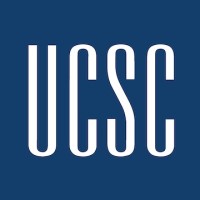Bachelor of Science in Mathematics Theory and Computation (Bachelors)
UC Santa Cruz
Santa Cruz, CA
The Mathematics Theory and Computation B.S. provides an excellent scientific background from which to pursue a variety of career opportunities. UC Santa Cruz graduates with degrees in mathematics hold teaching posts at all levels, as well as positions in law, government, civil service, insurance, software development, business, banking, actuarial science, forensics, and other professions where skills in logic, numerical analysis, and computing are required. In particular, students of mathematics are trained in the art of problem-solving, an essential skill in all professions.
Kết quả học tập của chương trình
Learning outcomes summarize the most important knowledge, skills, abilities, and attitudes that students are expected to develop over the course of their studies. The program learning outcomes clearly communicate the faculty’s expectations to students, provide a framework for faculty evaluation of the curriculum based on empirical data, and help improve and measure the impact of implemented changes.
Mathematics Undergraduate Student Learning Objectives
The mathematics program promotes mathematical skills and knowledge for their intrinsic beauty, effectiveness in developing proficiency in analytical reasoning, and utility in modeling and solving real-world problems. To responsibly live within and participate in the transformation of a rapidly changing, complex, and interdependent society, toward a sustainable and socially just society, students must develop and unceasingly exercise their analytical abilities. Students who have learned to logically question assertions, recognize patterns, and can distinguish the essential from the irrelevant aspects of problems can think deeply and precisely. Students equipped with these skills will be in a position to help solve the “big” problems of our time such as climate change.
Students majoring in mathematics attain proficiency in:
✔ Critical thinking. The ability to identify, reflect upon, evaluate, integrate, and apply different types of information and knowledge to form independent judgments including analytical and logical thinking and the habit of drawing conclusions based on quantitative information.
✔ Problem solving. The ability to assess and interpret complex situations, choose among several potentially appropriate mathematical methods of solution, persist in the face of difficulty, and present full and cogent solutions that include appropriate justification for their reasoning.
✔ Effective communication. The ability to communicate and interact effectively with different audiences, collaborate intellectually and creatively in diverse contexts, and appreciate ambiguity and nuance, while emphasizing the importance of clarity and precision in communication and reasoning.
Students acquire and enhance these abilities in mathematical contexts, but the acquired habits of rigorous thought and creative problem solving are invaluable in all aspects of life. These skills are acquired through experience in the context of studying specific mathematical topics and exploring problems chosen to challenge students’ abilities, spurring them on to acquire new techniques and to abandon familiar but restrictive habits of thought. The overarching objectives can be realized in terms of more focused, appraisable objectives specific to mathematics described on the Mathematics Department website.
















